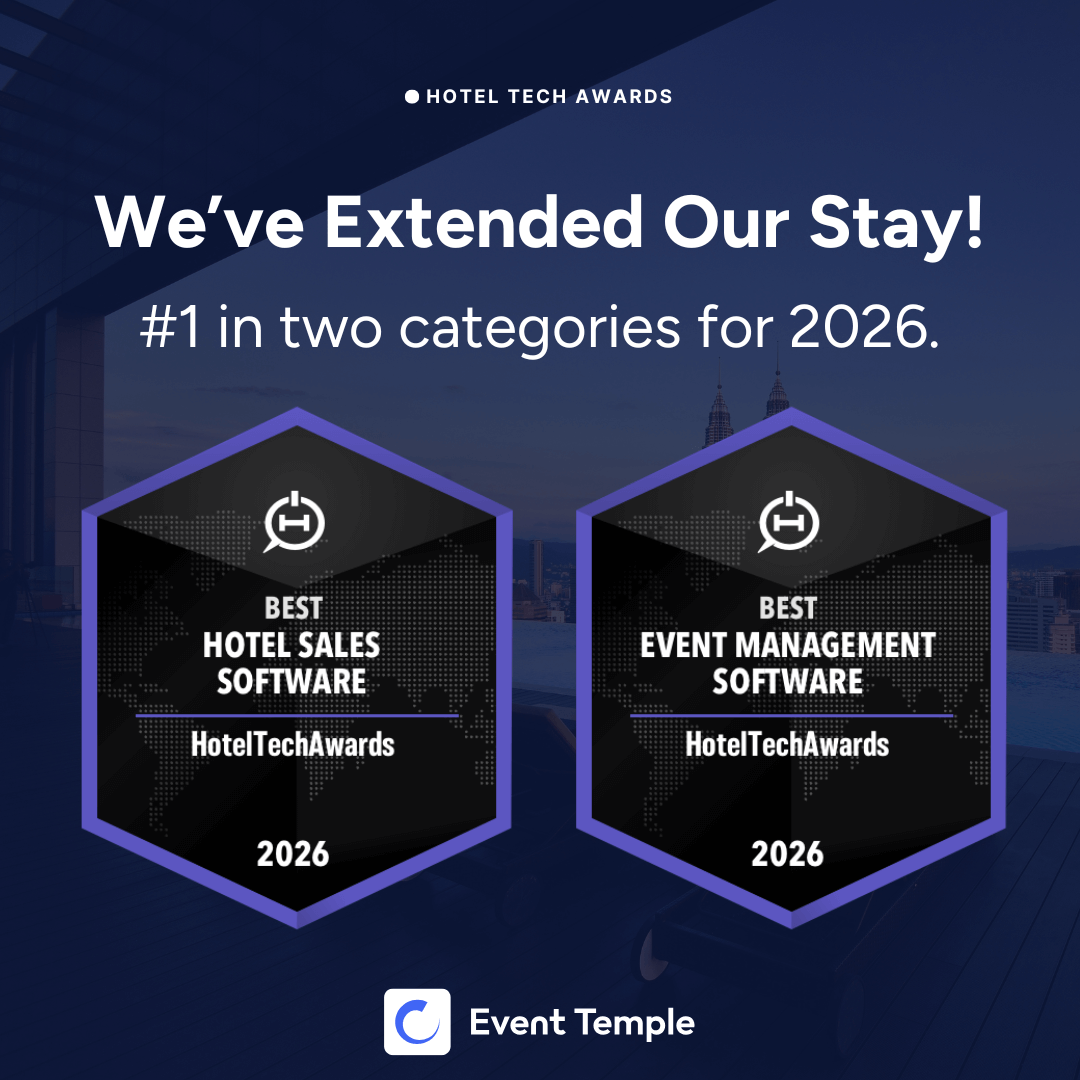.jpeg)
Hey there! Thinking about launching a website for your hotel? That's a fantastic idea. In today's digital age, a strong online presence isn't just a luxury—it's a necessity. A well-crafted website can be your most powerful hotel sales tool, driving bookings, and enhancing guest experiences. But where do you start? Don't worry; we're in this together. Let's dive into how you can create an amazing hotel website that boosts sales, simplifies management, and showcases your unique offerings.
Understanding the Importance of a Hotel Website
Before we get into the nuts and bolts, let's discuss why a hotel website is crucial.
Enhancing Hotel Sales
Imagine a traveler planning a trip. They're browsing online, looking for the perfect place to stay. If your hotel doesn't have a website, or if it's outdated, you're missing out on potential bookings. A well-designed website acts as your primary hotel sales tool—a place where guests can explore rooms, and amenities, and make reservations directly. This not only increases your revenue but also reduces commission fees from third-party booking sites.
Example: A boutique hotel in Paris revamped its website to include high-quality images and an easy booking system. Within six months, direct bookings increased by 40%, significantly boosting their profits.
Streamlining Hotel Management
Integrating management tools into your website can save you time and reduce errors. From booking systems to customer relationship management (CRM), the right features can make a world of difference.
Scenario: Instead of manually tracking reservations and availability, an integrated booking system updates this information in real time, reducing the risk of overbooking and improving guest satisfaction.
Step 1: Define Your Goals
First things first, what do you want your website to achieve? Setting clear goals will guide every decision you make during the development process.
Potential Goals
- Increase Direct Bookings: Reduce reliance on third-party sites like Expedia or Booking.com.
- Showcase Amenities: Highlight what makes your hotel special—be it a rooftop pool, spa services, or gourmet dining.
- Promote Event Spaces: We'll delve deeper into this, but if you offer meeting rooms or venues, your website is the perfect place to showcase them.
- Improve Customer Engagement: Encourage repeat visits and build loyalty through newsletters or special offers.
Example: A coastal resort aimed to increase wedding bookings. By adding a dedicated wedding page with stunning photos and package details, they saw a 25% increase in wedding inquiries.
Step 2: Choose the Right Platform
Selecting the right website platform sets the foundation for your online presence. The platform you choose should align with your technical skills, budget, and long-term needs.
Website Builders vs. Custom Development
Website Builders
- Pros: User-friendly, no coding required, templates available.
- Cons: Limited customization, may not scale well.
- Examples: Wix, Squarespace, Weebly.
Scenario: If you're a small hotel owner with limited technical skills, using Wix allows you to drag and drop elements to build your site quickly.
Custom Development
- Pros: Highly customizable, scalable, unique design.
- Cons: More expensive, requires professional developers.
- Examples: Websites built using WordPress with custom themes or entirely from scratch.
Example: A luxury hotel chain opts for custom development to integrate a bespoke booking system that aligns with its existing hotel management software.
Considerations
- Budget: How much are you willing to invest upfront and for ongoing maintenance?
- Technical Skills: Do you have the expertise, or will you hire someone?
- Scalability: Will the platform accommodate future growth, like adding more rooms or services?
- Integration Needs: Do you need to integrate with hotel management systems or CRM tools?
Step 3: Design with Your Guests in Mind
Your website should offer an excellent user experience. Think of it as the digital lobby of your hotel—it should be welcoming, easy to navigate, and reflective of your brand.
User-Friendly Navigation
Make it easy for visitors to find what they're looking for.
- Clear Menu Structure: Organize pages logically, such as Home, Rooms, Amenities, Dining, Events, and Contact.
- Call-to-Action Buttons: Use prominent buttons like "Book Now" or "Check Availability" to guide users.
- Breadcrumbs: Help users understand where they are on your site.
Example: A guest looking for spa services should be able to find that information within two clicks.
Mobile Responsiveness
With over 50% of web traffic coming from mobile devices, ensuring your site looks and functions well on smartphones and tablets is crucial.
Scenario: A potential guest searches for hotels while commuting. If your site isn't mobile-friendly, they'll likely move on to a competitor whose site is easy to navigate on their phone.
Visual Appeal
- High-Quality Images: Invest in professional photography. Show various room types, amenities, and local attractions.
- Virtual Tours: Offer 360-degree views or video walkthroughs of your property.
- Consistent Branding: Use colors, fonts, and logos that reflect your hotel's aesthetic.
Example: A mountain lodge uses earthy tones and nature imagery to create a cohesive look that resonates with its outdoor-loving clientele.
Step 4: Integrate a Booking System
An integrated booking system simplifies reservations for both you and your guests. It can significantly enhance your hotel's management efficiency.
Real-Time Availability
Show up-to-date room availability to avoid overbooking.
Scenario: A guest books the last available suite for a weekend getaway. The system immediately updates, ensuring no one else can book that room for the same dates.
Secure Payment Gateway
Ensure that transactions are safe and trustworthy.
- SSL Encryption: Protects sensitive data.
- Multiple Payment Options: Accept credit cards, PayPal, or other local payment methods.
Example: A guest feels confident booking directly through your site because they see trusted payment icons and security certificates.
Confirmation and Reminders
Automate emails to confirm bookings and send reminders before arrival.
Scenario: After booking, the guest receives a confirmation email with their reservation details and a reminder about check-in times and amenities.
Step 5: Highlight Your Meeting and Event Spaces
Now, let's focus on promoting your venue management offerings. If your hotel offers meeting rooms, conference centers, or event spaces, showcasing them effectively can attract a whole new segment of clientele.
Dedicated Event Pages
Create specific pages for different types of events.
- Corporate Events: Highlight amenities like Wi-Fi, projectors, and seating arrangements.
- Weddings: Showcase beautiful setups, bridal suites, and catering options.
- Social Gatherings: Feature spaces suitable for birthdays, anniversaries, or reunions.
Example: A hotel near a business district creates a page dedicated to corporate events, emphasizing proximity to major offices and transportation hubs.
Detailed Descriptions
Outline capacities, layouts, and amenities.
- Room Dimensions: Provide measurements and capacity charts.
- Layout Options: Show seating arrangements like theater, classroom, or banquet styles.
- Equipment Availability: List available AV equipment, stage setups, or lighting options.
Scenario: An event planner can download a PDF with all the specifications they need without having to call for basic information.
Virtual Tours
Offer 360-degree views or video walkthroughs of event spaces.
Example: A couple planning their wedding from out of town can virtually walk through the ballroom, helping them decide without an in-person visit.
Testimonials
Share success stories from past clients.
Quote: "Our conference was a huge success thanks to the attentive staff and excellent facilities at Hotel Luxe." – Jane D., Event Coordinator
Inquiry Forms
Make it easy for potential clients to reach out.
- Customized Forms: Collect necessary details like event type, date, number of attendees.
- Quick Response Time: Set expectations by stating you'll respond within 24 hours.
Scenario: An event planner submits an inquiry and receives a prompt, personalized reply, increasing the likelihood of booking.
Promotional Packages
Offer special deals for booking event spaces.
- Bundle Services: Include catering, accommodation discounts, or complimentary services.
- Seasonal Offers: Encourage bookings during off-peak times with reduced rates.
Example: Book your corporate event in December and receive a 20% discount on room rentals and catering services.
Step 6: Optimize for SEO
Get your website found on search engines like Google. Search Engine Optimization (SEO) is crucial for driving organic traffic.
Keyword Integration
Use target keywords naturally throughout your site.
- Hotel Sales: "Our hotel sales team is dedicated to providing you with the best group rates."
- Hotel Management: "Experience seamless hotel management with our integrated booking system."
- Venue Management: "Our venue management services ensure your event runs smoothly."
- Hotel Sales Tool: "Use our online booking engine, the ultimate hotel sales tool."
- Hotel Website: "Welcome to the official hotel website of Oceanview Resorts."
Tip: Avoid keyword stuffing. The content should read naturally.
Meta Tags and Descriptions
Optimize each page's title tags and meta descriptions.
Example:
- Title Tag: "Luxury Suites in Downtown – Book Direct & Save | Your Hotel Name"
- Meta Description: "Experience elegance and comfort in our luxury suites. Book directly on our hotel website for exclusive offers."
Quality Content
Regularly update your blog or news section with relevant content.
- Local Guides: Write about local attractions or events.
- Travel Tips: Offer advice on packing, local customs, or the best times to visit.
- Hotel Updates: Announce renovations, new amenities, or staff highlights.
Scenario: A guest finds your blog post about "Top 10 Things to Do in Your City" and decides to book with you because of your helpful content.
Step 7: Add Interactive Features
Engage your visitors with interactive elements that enhance their experience on your site.
Live Chat Support
Provide instant assistance to answer queries.
Example: A potential guest has a question about pet policies. They use the live chat and get an immediate response, leading them to complete the booking.
Social Media Integration
Link your social profiles and encourage sharing.
- Social Buttons: Add icons linking to your Facebook, Instagram, Twitter, or LinkedIn profiles.
- Shareable Content: Enable guests to share pages or blog posts.
Scenario: A guest shares a photo from your gallery on their social media, increasing your hotel's exposure.
Reviews and Ratings
Display guest reviews to build trust.
- Testimonial Sections: Highlight positive feedback.
- Third-Party Reviews: Integrate reviews from TripAdvisor or Yelp.
Example: Seeing numerous positive reviews convinces a hesitant traveler to choose your hotel over others.
Step 8: Ensure Compliance and Security
Protect your business and guests by adhering to legal requirements and safeguarding data.
GDPR Compliance
If you operate in or serve guests from Europe, ensure you're compliant with the General Data Protection Regulation.
- Privacy Policy: Clearly state how you collect and use data.
- Cookie Consent: Inform visitors about cookies and obtain consent.
Scenario: A guest from Germany feels secure knowing your site complies with European data protection laws.
SSL Certificate
Secure your site with HTTPS to protect data.
Example: The padlock icon in the browser's address bar assures guests that their personal and payment information is secure.
Accessibility
Make your site usable for people with disabilities.
- Alt Text for Images: Helps screen readers describe images.
- Keyboard Navigation: Ensure all functionalities are accessible via the keyboard.
- Contrast Ratios: Use color combinations that are readable for those with visual impairments.
Scenario: A guest with visual impairments can navigate your site and book a room without assistance.
Step 9: Test Before Launch
Before going live, double-check everything to ensure a smooth user experience.
Usability Testing
Have real users navigate your site and provide feedback.
Example: Testers might find that the "Book Now" button isn't prominently displayed on mobile devices, allowing you to fix this before launch.
Load Times
Optimize images and code to ensure fast loading.
- Compress Images: Use tools to reduce image file sizes without losing quality.
- Minify Code: Remove unnecessary characters from HTML, CSS, and JavaScript.
Scenario: A faster-loading site reduces bounce rates, keeping potential guests engaged.
Cross-Browser Compatibility
Ensure your site works well on all major browsers.
Tip: Test your site on Chrome, Firefox, Safari, and Edge, as well as on mobile browsers.
Error Checking
- Broken Links: Use tools to find and fix any broken links.
- Form Validation: Ensure all forms work correctly and data is correctly captured.
Example: A guest tries to submit a contact form but encounters an error. Catching this before launch prevents lost inquiries.
Step 10: Launch and Promote
You're ready to go live! Now it's time to let the world know.
Announce the Launch
Use email marketing and social media to spread the word.
- Email Newsletter: Send an announcement to your mailing list with a special launch offer.
- Social Media Posts: Create engaging posts with visuals and links to your new site.
Example: "We're excited to announce the launch of our new website! Book now and enjoy a 15% discount on your first stay."
Monitor Analytics
Track visitor behavior to continue improving your site.
- Google Analytics: Monitor traffic sources, page views, and user behavior.
- Conversion Rates: Analyze how many visitors are booking rooms.
Scenario: If you notice many visitors drop off at the booking page, you might need to simplify the process.
Ongoing Updates
Keep content fresh and fix any issues promptly.
- Regular Content Updates: Add new blog posts, update event calendars, or refresh images.
- Maintenance Checks: Regularly test site functionalities and security measures.
Tip: An outdated website can deter guests. Regular updates show that your hotel is active and attentive.
Checklist: Steps to Create the Best Hotel Website
- Define Your Goalssome text
- Increase direct bookings
- Showcase amenities
- Promote event spaces
- Improve customer engagement
- Choose the Right Platformsome text
- Consider budget, technical skills, scalability
- Decide between website builders or custom development
- Design with Your Guests in Mindsome text
- User-friendly navigation
- Mobile responsiveness
- Visual appeal with high-quality images and consistent branding
- Integrate a Booking Systemsome text
- Real-time availability
- Secure payment gateway
- Automated confirmations and reminders
- Highlight Your Meeting and Event Spacessome text
- Dedicated event pages
- Detailed descriptions and virtual tours
- Testimonials and inquiry forms
- Optimize for SEOsome text
- Natural keyword integration
- Optimized meta tags and descriptions
- Quality, regularly updated content
- Add Interactive Featuressome text
- Live chat support
- Social media integration
- Display reviews and ratings
- Ensure Compliance and Securitysome text
- GDPR Compliance
- SSL certificate for data security
- Website Accessibility
- Test Before Launchsome text
- Usability testing with real users
- Optimize load times
- Check cross-browser compatibility
- Fix any errors or broken links
- Launch and Promotesome text
- Announce the launch via email and social media
- Monitor analytics for continuous improvement
- Keep content updated regularly
Conclusion
There you have it—a comprehensive, step-by-step guide to launching your hotel website. It's a journey, but with each step, you're building a powerful tool that can significantly boost your hotel sales and streamline management. Remember, your website is more than just a digital brochure; it's an interactive platform that can engage guests, promote your unique offerings, and set you apart from the competition.
So, are you ready to take your hotel's online presence to the next level? Let's make your hotel website a shining example of what excellent hospitality looks like in the digital age. If you have any questions or need further guidance, don't hesitate to reach out. We're here to help you every step of the way.



